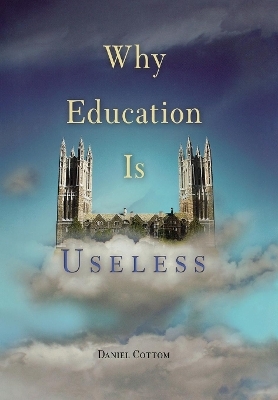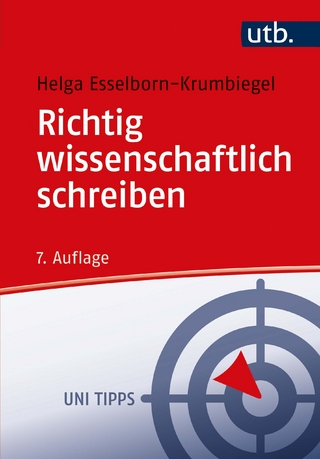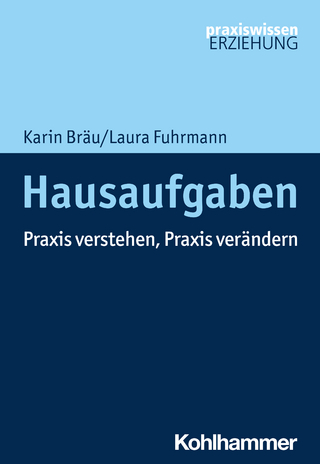
Why Education Is Useless
Seiten
2003
University of Pennsylvania Press (Verlag)
978-0-8122-3720-7 (ISBN)
University of Pennsylvania Press (Verlag)
978-0-8122-3720-7 (ISBN)
- Lieferbar (Termin unbekannt)
- Versandkostenfrei innerhalb Deutschlands
- Auch auf Rechnung
- Verfügbarkeit in der Filiale vor Ort prüfen
- Artikel merken
"A tour de force, implicitly summarizing and commenting on more than two millennia of arguments about the function of education."-Michael Berube, author of The Employment of English: Theory, Jobs, and the Future of Literary Studies
Education is useless because it destroys our common sense, because it isolates us from the rest of humanity, because it hardens our hearts and swells our heads. Bookish persons have long been subjects of suspicion and contempt and nowhere more so, perhaps, than in the United States during the past twenty years.
Critics of education point to the Nazism of Martin Heidegger, for example, to assert the inhumanity of highly learned people; they contend that an oppressive form of identity politics has taken over the academy and complain that the art world has been overrun by culturally privileged elitists. There are always, it seems, far more reasons to disparage the ivory tower than to honor it. The uselessness of education, particularly in the humanities, is a pervasive theme in Western cultural history.
With wit and precision, Why Education Is Useless engages those who attack learning by focusing on topics such as the nature of humanity, love, beauty, and identity as well as academic scandals, identity politics, multiculturalism, and the corporatization of academe. Asserting that hostility toward education cannot be dismissed as the reaction of barbarians, fools, and nihilists, Daniel Cottom brings a fresh perspective to all these topics while still making the debates about them comprehensible to those who are not academic insiders.
A brilliant and provocative work of cultural argument and analysis, Why Education Is Useless brings in materials from literature, philosophy, art, film, and other fields and proceeds from the assumption that hostility to education is an extremely complex phenomenon, both historically and in contemporary American life. According to Cottom, we must understand the perdurable appeal of this antagonism if we are to have any chance of recognizing its manifestations—and countering them.
Ranging in reference from Montaigne to George Bush, from Sappho to Timothy McVeigh, Why Education Is Useless is a lively investigation of a notion that has persisted from antiquity through the Renaissance and into the modern era, when the debate over the relative advantages of a liberal and a useful education first arose. Facing head on the conception of utility articulated in the nineteenth century by John Stuart Mill, and directly opposing the hostile conceptions of inutility that have been popularized in recent decades by such ideologues as Allan Bloom, Harold Bloom, and John Ellis, Cottom contends that education must indeed be "useless" if it is to be worthy of its name.
Education is useless because it destroys our common sense, because it isolates us from the rest of humanity, because it hardens our hearts and swells our heads. Bookish persons have long been subjects of suspicion and contempt and nowhere more so, perhaps, than in the United States during the past twenty years.
Critics of education point to the Nazism of Martin Heidegger, for example, to assert the inhumanity of highly learned people; they contend that an oppressive form of identity politics has taken over the academy and complain that the art world has been overrun by culturally privileged elitists. There are always, it seems, far more reasons to disparage the ivory tower than to honor it. The uselessness of education, particularly in the humanities, is a pervasive theme in Western cultural history.
With wit and precision, Why Education Is Useless engages those who attack learning by focusing on topics such as the nature of humanity, love, beauty, and identity as well as academic scandals, identity politics, multiculturalism, and the corporatization of academe. Asserting that hostility toward education cannot be dismissed as the reaction of barbarians, fools, and nihilists, Daniel Cottom brings a fresh perspective to all these topics while still making the debates about them comprehensible to those who are not academic insiders.
A brilliant and provocative work of cultural argument and analysis, Why Education Is Useless brings in materials from literature, philosophy, art, film, and other fields and proceeds from the assumption that hostility to education is an extremely complex phenomenon, both historically and in contemporary American life. According to Cottom, we must understand the perdurable appeal of this antagonism if we are to have any chance of recognizing its manifestations—and countering them.
Ranging in reference from Montaigne to George Bush, from Sappho to Timothy McVeigh, Why Education Is Useless is a lively investigation of a notion that has persisted from antiquity through the Renaissance and into the modern era, when the debate over the relative advantages of a liberal and a useful education first arose. Facing head on the conception of utility articulated in the nineteenth century by John Stuart Mill, and directly opposing the hostile conceptions of inutility that have been popularized in recent decades by such ideologues as Allan Bloom, Harold Bloom, and John Ellis, Cottom contends that education must indeed be "useless" if it is to be worthy of its name.
Daniel Cottom is David A. Burr Chair of Letters at the University of Oklahoma. He is author of numerous books, including Ravishing Tradition: Cultural Forces and Literary History and Cannibals and Philosophers: Bodies of Enlightenment.
Introduction. Why Education Is Useless
Chapter One. Humanity
Chapter Two. Love
Chapter Three. Beauty
Chapter Four. Identity
Chapter Five. Survival
Chapter Six. Utility
Notes
Index
Acknowledgments
| Erscheint lt. Verlag | 21.5.2003 |
|---|---|
| Verlagsort | Pennsylvania |
| Sprache | englisch |
| Maße | 152 x 229 mm |
| Themenwelt | Sozialwissenschaften ► Pädagogik |
| ISBN-10 | 0-8122-3720-X / 081223720X |
| ISBN-13 | 978-0-8122-3720-7 / 9780812237207 |
| Zustand | Neuware |
| Haben Sie eine Frage zum Produkt? |
Mehr entdecken
aus dem Bereich
aus dem Bereich
100 Kreative denken Lernen neu
Buch | Softcover (2023)
Franz Vahlen (Verlag)
59,00 €
Wissenschaftssprache in Regeln und Übungen
Buch | Softcover (2022)
UTB (Verlag)
15,00 €


